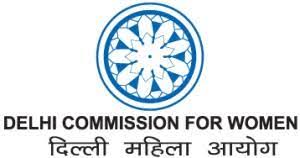The Delhi Commission for Women (DCW) has submitted recommendations to the Ministry of Home Affairs and the Department of Social Welfare to improve living conditions for transgender people.
The DCW highlighted that 12 states have established Transgender Welfare Boards, urging Delhi to follow suit.
The commission also recommended the implementation of welfare schemes and shelter homes for transgender individuals in need.
Only 76 “certificates of identity” have been issued in Delhi in the past three years, despite over 4,200 transgender people recorded in the 2011 census.
“Further, we had learnt that Delhi Government has not launched any scheme for the welfare of transgenders [sic]. We have recommended that the government immediately launch schemes in this regard and set up shelter homes for those transgenders who are in need of care and protection of the state,” said a DCW official.
“Further, most districts have received very few applications seeking Transgender Certificates. For instance, Shahdara District received only four applications in the past three years, since the Act came into effect,” added the DCW official.
“The Centre must immediately notify the State Rules for NCT of Delhi and the Transgender Welfare Board for Delhi. Further, it is unfortunate that Delhi Government has informed the Commission that it is not running any schemes or shelter homes for welfare of transgenders. This needs to be immediately rectified,” said Swati Maliwal, the DCW chief.
“There are several lacunas in the implementation of the Transgender Persons (Protection of Rights) Act, 2019 in Delhi and steps need to be taken urgently to tackle this. Hope that our recommendations will help the Centre and the State ascertain the extent of the problem and take measures to improve the situation,” she added.
Transgender Certificates in India
In India, “transgender certificates” or “certificates of identity” are legal documents that recognise an individual’s self-identified gender identity as transgender. They were introduced as part of the Transgender Persons (Protection of Rights) Act, which was passed in 2019. This act aims to protect the rights of transgender people, prohibit discrimination against them, and provide for their welfare and social inclusion.
To obtain a transgender certificate, individuals must apply to the District Magistrate in their district. Upon application, the District Magistrate refers the applicant to a Screening Committee, which consists of a medical officer, a psychologist or psychiatrist, a district social welfare officer, a representative of the transgender community, and a government officer. The Screening Committee reviews the application and may issue a certificate of identity, recognising the person as a transgender individual.
This certificate allows transgender individuals to access various rights and entitlements, such as reservations in education and employment, healthcare facilities, and social welfare schemes. It is a crucial step towards ensuring legal recognition and protection of transgender persons in India.
However, the implementation of the act and the process of issuing transgender certificates has faced criticism and challenges, as we see above. There have been concerns about the functioning of the Screening Committees and the limited number of certificates issued in some regions. Activists argue that the process should be more straightforward, inclusive, and respectful of transgender people’s right to self-identification.











